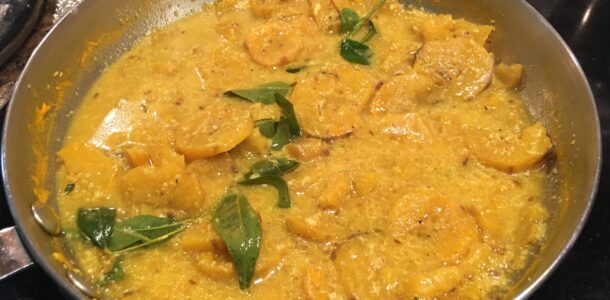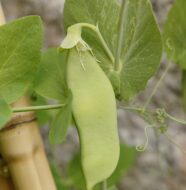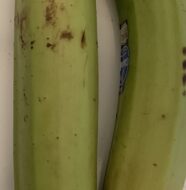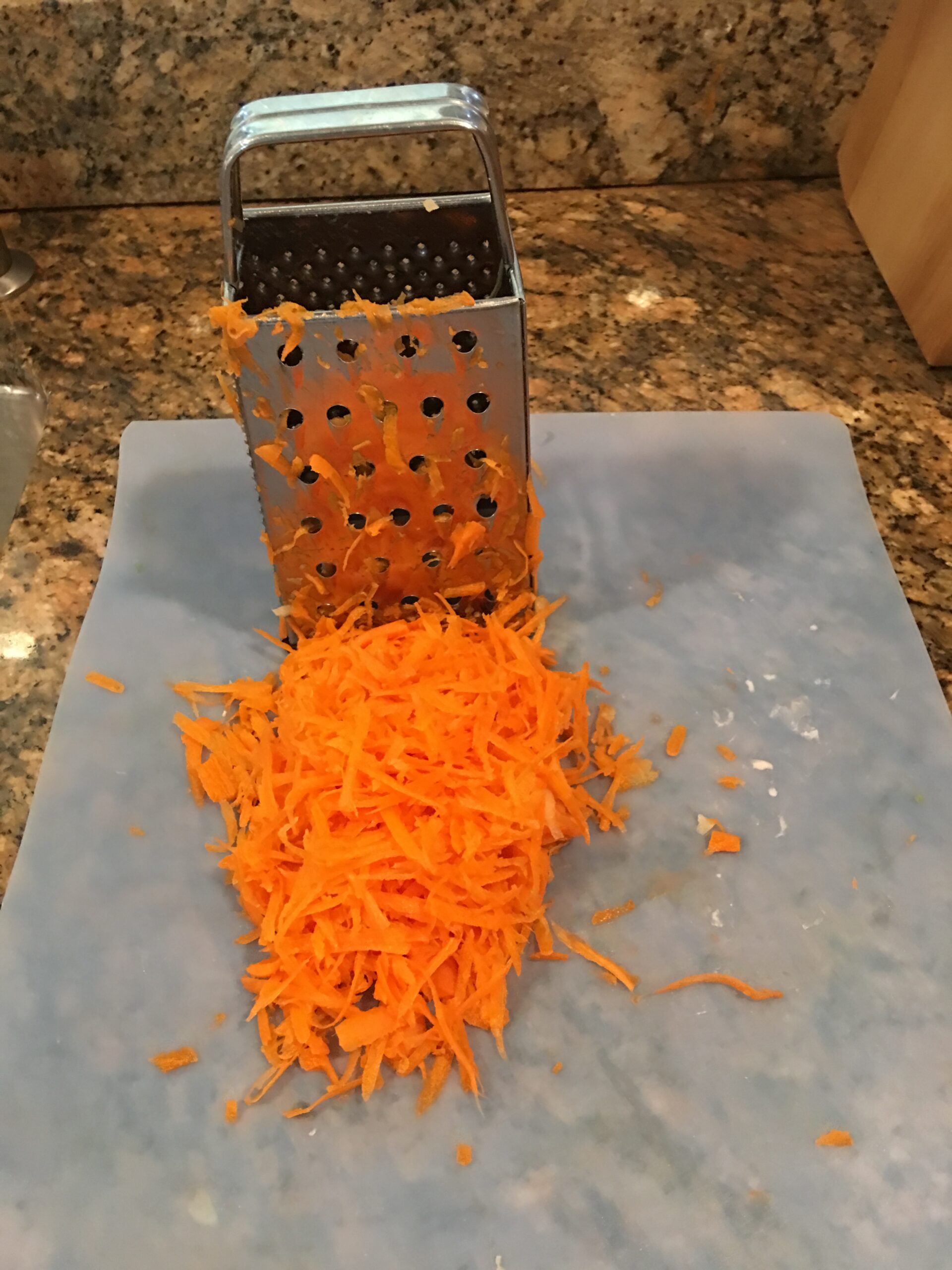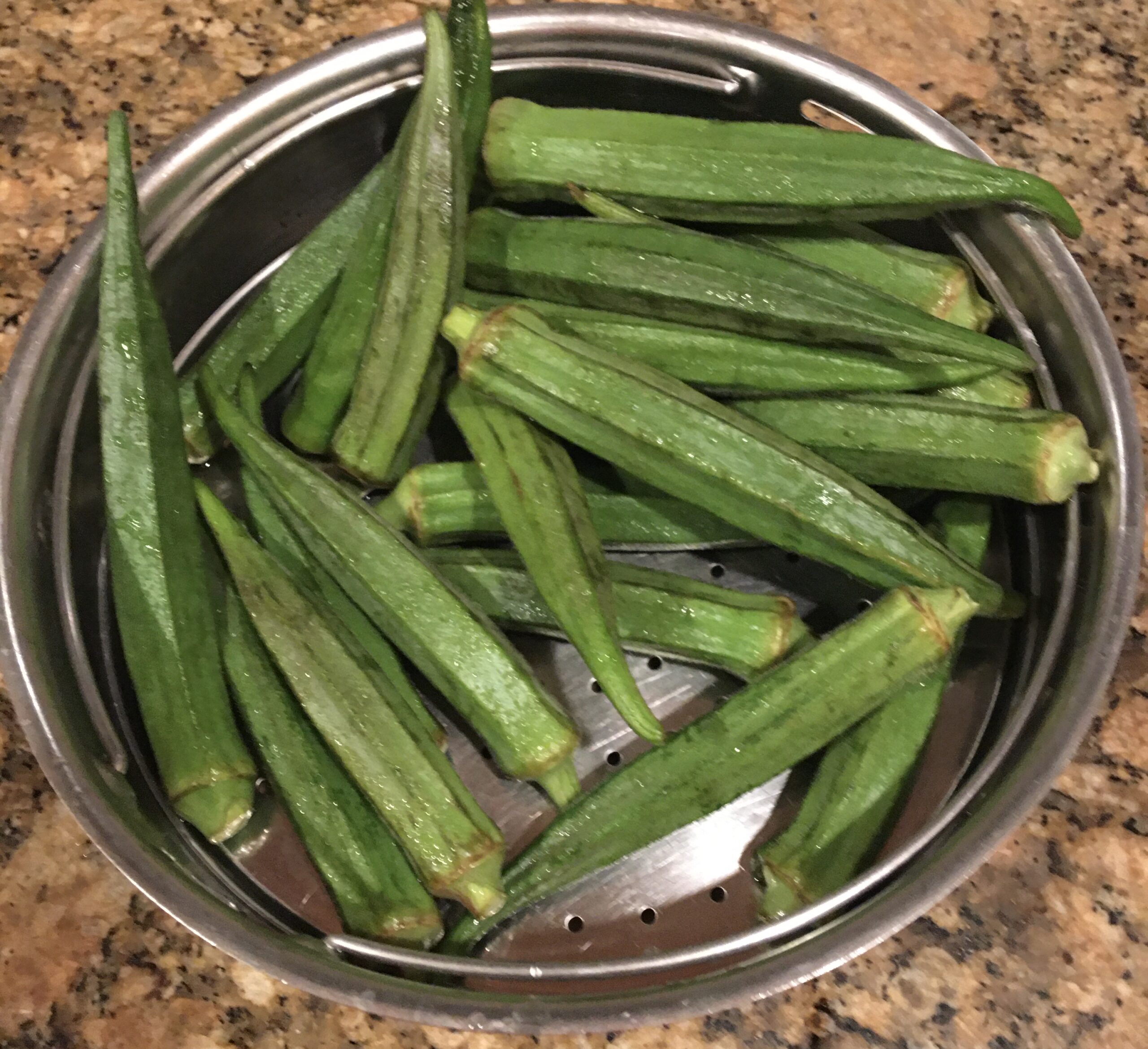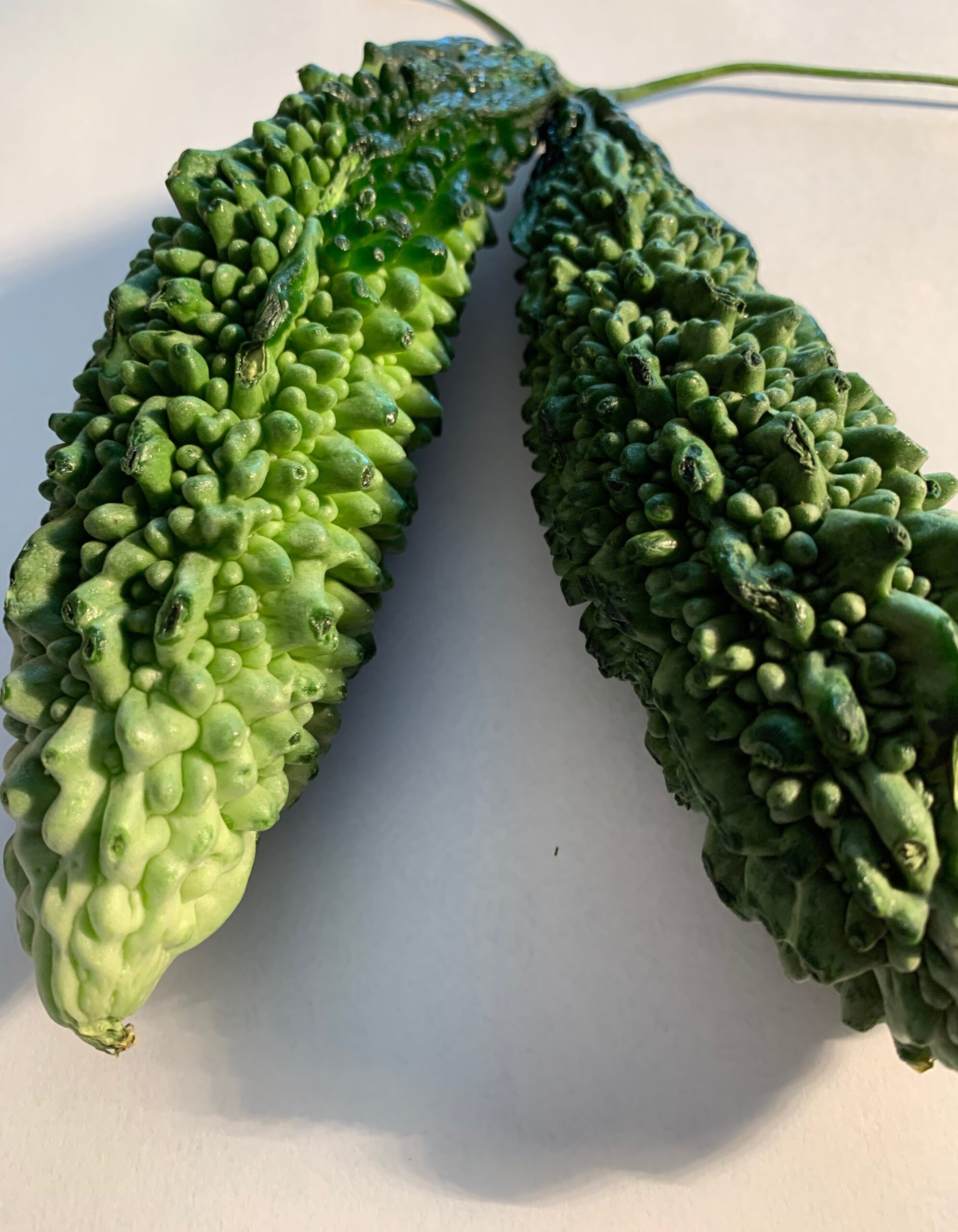Plantain,(scientific name Platano major) of the genus Musa, is referred to as cooking banana and extremely popular in Africa, Latin America, and India. It has a mild flavor like squash and is used as a potato would in the U.S. In South India, biodegradable banana leaves are eaten by cows, used to steam food, and as a wrap to parcel flowers and cooked food. They are also used as a plate to eat on in the South Indian Thali or during Sadhya (feast). Green plantain is high in carbohydrates, low in protein and fats. Ripe plantains are sweet and can be eaten raw, steamed, sauteed, or made into a jam with brown sugar.
Buying and storage: Plantains are available throughout the year in USA . Look for firm mature deep green well formed plantains that feel heavy in hand. They can be stored outside at room temperature for a week and allowed to ripen hanging from a hook or string.
History: Several sources claim that the plantains were introduced to the Caribbean by Portuguese Franciscan friars. The Spaniards who saw a similarity to the banana tree named it Platano in Spanish. In Uganda, Kenya, and Tanzania, and the Dominican Republic Plantains have become the main carbohydrate food source.
Plantain leaves resemble banana leaves, but are larger, more durable, and reduce waste. The leaves are usually smoked over an open fire that adds to their toughness and storage properties. Since they add a subtle aroma to any dish cooked in, they are used to wrap many dishes like Hallacas in Venezuela. In Nicaragua, the leaves are used to wrap Nacamales. In Honduras, Colombia, and the Caribbean islands plantain leaves are used to wrap Tamales.
Plantain Recipes
Plantain stew (Nendrankai Vattan)
Plantain Saute (Nendrankai Upperi)
Plantain Chips (Nendrankai Varaval)
Stuffed Plantains (Bhara Rajali Kela)
Steamed ripe Plantains (Pazham Puzhungi)
Sauteed ripe Plantains (Pazham Perati)
Nutrition Facts of Plantain (Plantago Major) 100g ripe
| GI =40; GL=8 Water = 96.6 g |
Minerals | Vitamins |
| Energy 122 kcal | Sodium 4mg – <1% | Folates 22mcg – 5.5% |
| Carb 31.89-24.5% | Potassium 499mg -10.6% | Niacin 0.686mg – 4% |
| Protein 1.3g – 2% | Calcium 3mg <0.5% | Pyridoxine 0.299mg – 23% |
| Total Fat 0.37g – 2% | Iron 0.6mg – 7.5% | Riboflavin 0.054mg -4 % |
| Cholesterol 0 mg – 0% | Magnesium 37mg – 9 % | Thiamin 0.052mg – 4% |
| Dietary Fiber 2.3g – 6% | Phosphorous 34mg – 5% | Vitamin A 1127IU – 37.5% |
| Zinc 0.14mg – 1% | Vitamin C 18.4mg – 31% | |
| Vitamin E 0.14mg – 1% | ||
| Vitamin K 0.1mcg – 1% |
Health Benefits of Plantains
- Plantains ensure food security: Plantains are very reliable resources of starch and energy that provide nutritious food to people around the world.
- Plantains reduce constipation: an adequate amount of dietary fiber ensures regular bowel movements to prevent constipation.
- Plantains boost immunity: plantains contain more vitamin C than bananas. 31%RDA which scavenge harmful oxygen-free radicals and develop resistance against infections.
- Plantains play a vital role in vision maintenance with vitamin A 37.5% RDA, an antioxidant and enhance skin complexion.
- Plantains play a beneficial role in the treatment of neuritis, anemia, and decrease homocysteine levels that causes coronary disease or stroke.
- Plantains aid bone-strengthening being rich in minerals like Magnesium that is essential for bone strengthening and has a cardiac protective role.
- Plantains contain potassium that helps control heart rate and blood pressure and counters the effect of sodium
Spice & Herb Power
- Turmeric powder: Curcumin in Turmeric is an anti-inflammatory compound effective in treatment at par with aspirin and Advil.
- Pepper powder: acts as an antidepressant; enhances digestion, helps you quit smoking and with weight loss; fights infection; treats cold and cough;
- Coconut flakes: improve cholesterol, decrease infections, help with weight loss, reduce cell damage by providing antioxidants.
- Coconut oil: marked as a superfood; high in saturated fats; fatty acids in it encourage the body to burn fat and raise HDL cholesterol; contains MCT s medium-chain triglycerides which the body uses for energy and converts to ketones that can have powerful benefits for the brain.
- Lemon juice: promotes hydration, improves skin quality, a good source of vitamin C, decreases the total GI of fatty foods, supports weight loss.
- Curry leaves: can help in reducing weight naturally due to the presence of the compound carbazole alkaloids that effectively helps to regulate the cholesterol levels in the body.
Method to cook Plantain Stew ( Nendrangai Vattan)
Plantain stew is more viscous than potato stew due to its extra starch content. In this recipe green plantains are sliced into circles, cooked with spices, and simmered in coconut milk, to make a delicious stew. This stew is usually served with rice hoppers (Aapam ) in Kerala.
In this recipe, green plantains are cut into thin slices, washed, cooked with spices, and simmered in coconut milk to make a delicious stew. It is usually served with AAPAM (rice hoppers) in Kerala.
- Peel plantain skin as follows: make slits at sharp corners; Pierce the knife into the slit and wedge it to remove thick skin. Slice plantains into 1/2″ thick circles. (5 min.)
- Place in 2 cups water mixed with 1/2 tsp. turmeric or 1 tsp. buttermilk to remove banana stains. rinse and drain in a colander.
- Cook sliced plantains with spices and 2 cups water in a pan on the stove or in a pressure cooker or microwave. * (10 min.)
- Add coconut milk to cooked plantains; let stew simmer to thicken (4 min.)
- Remove from heat. Crush coconut with green chili and add to the stew.
- If using One-Pot add to plantains, the water, spices, coconut milk, coconut, and green chili; cover with a lid and cook for 15 min.
- Garnish with coconut oil and curry leaves.
- Add lemon juice after the stew has cooled.
- Serve Plantain Stew with Quinoa, Lemon or Tomato Rice, Pasta or bread rolls.
TIPS
Soak plantains in ice-cold water to help peel the skin easily
Plantain = Nendrangai / Rajali Kela ;Vattan = cut in circles

